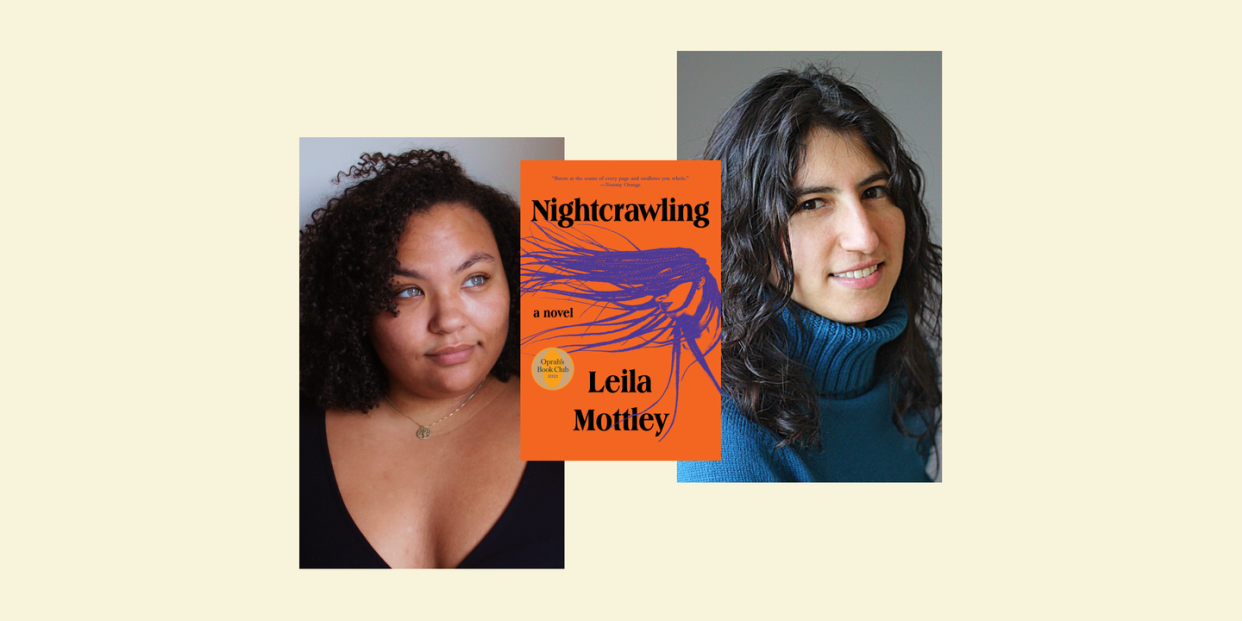Knopf Editor Diana Miller on the Electrifying Moment She Read “Nightcrawling”

The manuscript of Nightcrawling landed on my desk in the middle of April 2020, a few weeks into the first Covid lockdowns in New York City. I was working from my Brooklyn apartment alongside my husband, also an editor, and our two small children (at the time, a 3-year-old and a 10-month-old). I was lucky to have a job I could do from home, but, like so many, I struggled to find a balance between full-time work and full-time parenting: changing diapers on Zoom calls, holding meetings in strange corners of the kids’ room, keeping on top of emails in the wee hours. So it was especially difficult to find the time to read—either for work or pleasure—and truly lose myself in a work of fiction.
Which is how I knew, within the first pages of Nightcrawling, I was experiencing something special. It was electrifying. I’ve heard the feeling described as “leave me alone, can’t you see I’m reading”: when the rest of the world goes quiet and all you can hear are the characters' voices. I remember I didn’t even have a chance to start reading the manuscript until later in the evening, after the kids had gone to bed. It was the first moment in that surreal time that the constant whir of worries and practicalities—even the endless sirens outside the window—went silent. Kiara’s voice, the streets of Oakland, the rhythms of the sentences, the combination of edge and tenderness—it blew my hair back. I recently reviewed my original notes and found scribbles like “mesmerizing” and “riveting” and “exposes the failures of a broken justice system while displaying tremendous humanity, resisting sentimentality.” It wasn’t always easy to inhabit Kiara as fully as the novel makes possible—she endures so much—but even the darkest moments came to life with fierce compassion.
Leila Mottley’s agents, to their credit, did not lead with one of the facts about Leila that has since gotten a great deal of attention: her age. I knew Leila was a college student, but I didn’t know she was 17. I was able to meet the book on its own terms.
I sent the manuscript around to my colleagues at Knopf, and before long there was a chorus of other passionate supporters. I was one of, I believe, 13 editors across the industry who wanted to publish Nightcrawling. So I was far from alone. It was a taste of what was to come, as the circle kept widening, and more and more people had the chance to read the book. But I will always remember that first solitary moment, encountering a sensibility I knew I would follow anywhere.
I feel incredibly fortunate to have been part of Leila’s process, part of the journey of this book and the team who helped bring it into the world. And I envy the readers coming to Nightcrawling for the first time. I hope they get to read the novel under less extenuating circumstances, but I have no doubt they will be just as floored by its power.
Diana Tejerina Miller is an executive editor at Alfred A. Knopf, where she has been since 2003. Among the award-winning authors whose books Miller has acquired and edited are Esi Edugyan, whose Washington Black won the Giller Prize; Richard Flanagan, whose The Narrow Road to the Deep North won the Booker; Yoon Choi, whose Skinship won the PEN/Bingham; Evie Wyld, whose All the Birds, Singing won the Miles Franklin Award; Elliot Ackerman, whose Dark at the Crossing was a finalist for the National Book Award; and Leila Mottley, Youth Poet Laureate of Oakland, whose Nightcrawling was recently named the #96 Oprah’s Book Club pick. Miller also works with Anne Tyler, Garth Risk Hallberg, Javier Marías, Jo Baker, Jonathan Lee, Sonali Deraniyagala, and Jane Smiley, among others.
You Might Also Like

